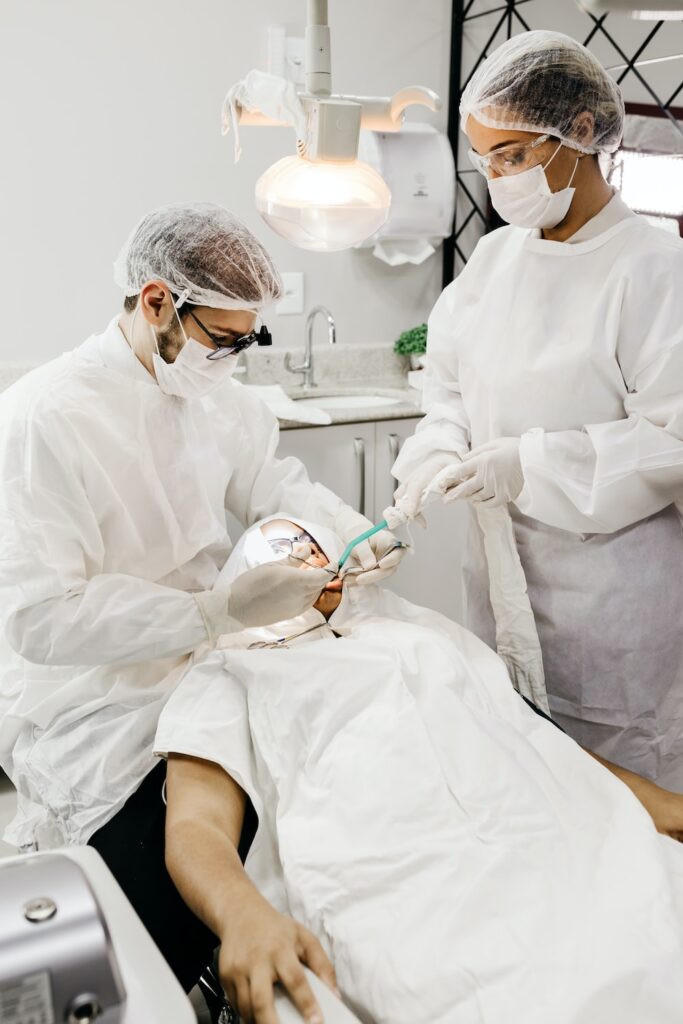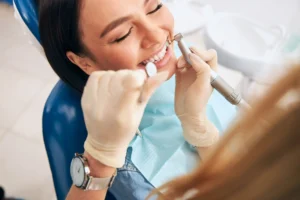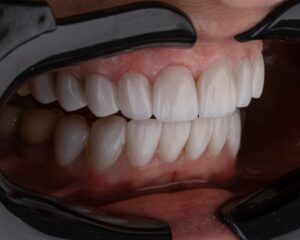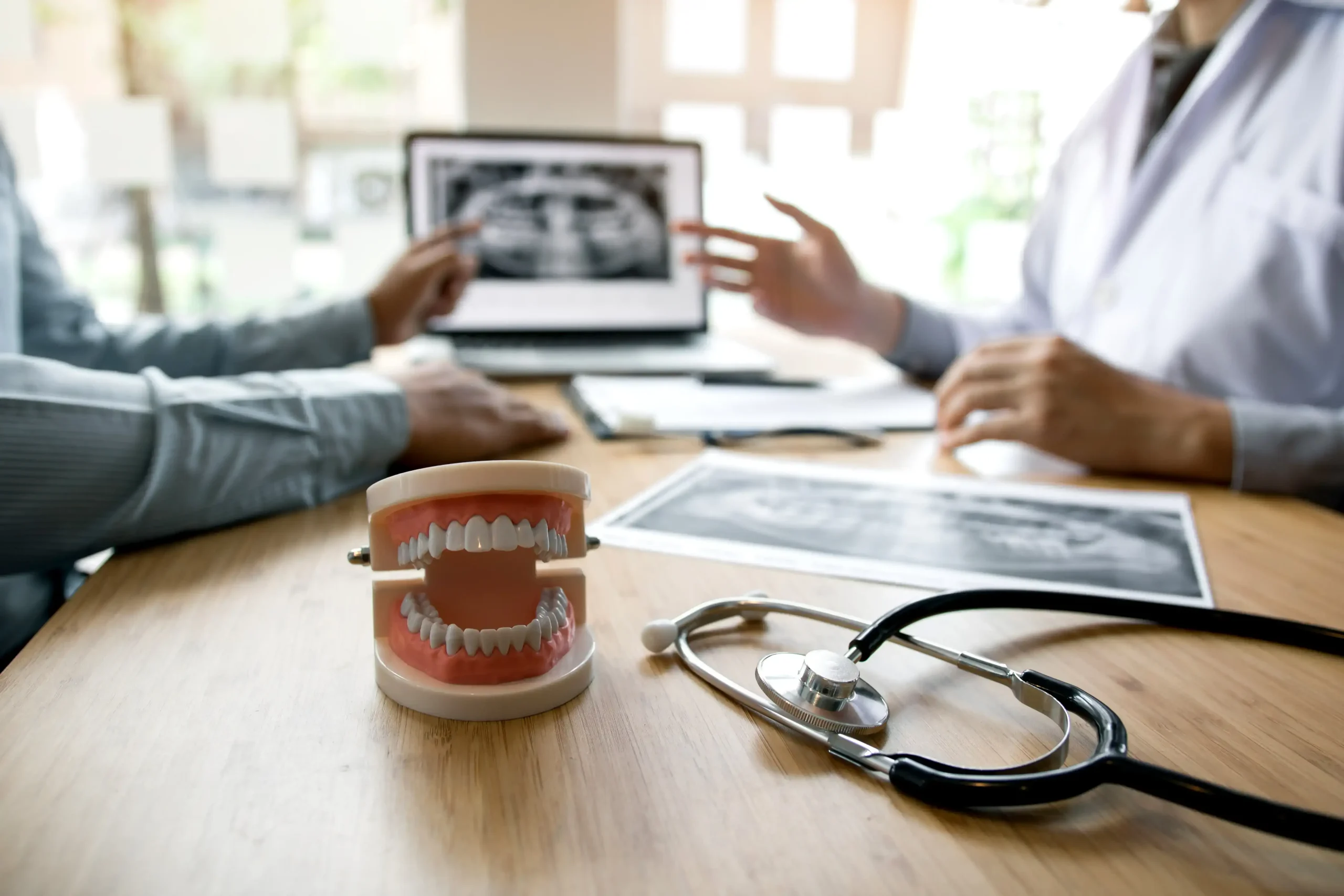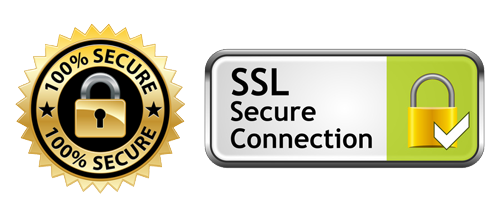Emergency dental care means immediate treatment for dental issues that require urgent attention, ensuring prompt relief and preventing further complications. In stressful situations where sudden tooth pain, severe injury, or other dental emergencies occur, receiving prompt care is crucial.
Whether it’s a broken tooth, severe pain, or an abscess, Dorset Dental offers quick, efficient, and effective treatment to address the problem and alleviate discomfort. By seeking emergency dental care, patients can receive immediate attention from skilled professionals to manage their dental emergencies and maintain optimal oral health.
Don’t let dental emergencies cause unnecessary suffering – prioritize emergency dental care to address urgent dental issues promptly and prevent further complications.
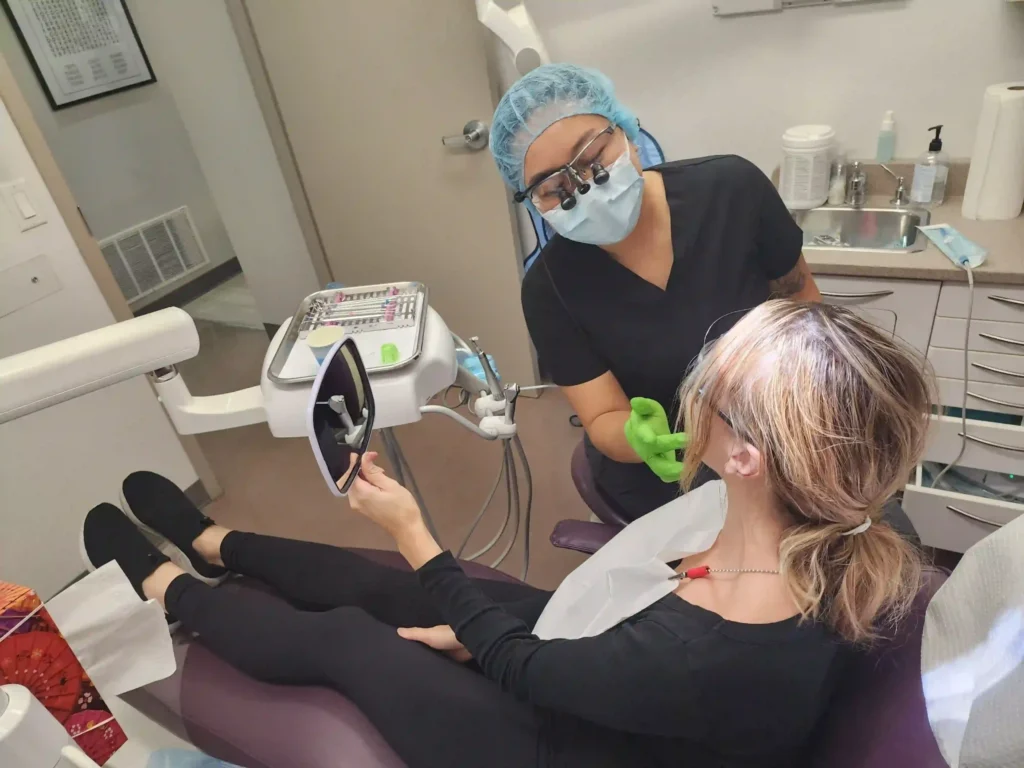
Understanding Dental Emergency
Dental emergencies can be both painful and distressing, requiring immediate attention and care. Understanding what constitutes a dental emergency and why prompt dental care is crucial during such situations is vital to safeguard your oral health. In this article, we will discuss common dental emergencies, their causes, and the importance of seeking prompt dental care during emergencies.
Common Dental Emergencies And Their Causes
Several dental emergencies can occur unexpectedly, causing immense discomfort and inconvenience. Here are some of the most common dental emergencies and their causes:
| Dental Emergency | Causes |
| Toothache | An abscessed tooth, tooth decay, gum infection |
| Broken or Chipped Tooth | Accidental trauma, biting down on a hard object |
| Knocked-Out Tooth | Sports injury, fall, accident |
| Loose or Lost Filling | Wear and tear, decay beneath the filling |
| Lost Crown or Dental Restoration | Weakened tooth structure, trauma |
The Importance of Prompt Dental Care During Emergencies
When dental emergencies occur, prompt care and attention can make all the difference in preventing further complications and preserving your oral health. Here’s why immediate dental care during emergencies is crucial:
- Relief from Pain: Seeking prompt dental care can help alleviate the pain and discomfort associated with dental emergencies.
- Prevent Infection: Dental emergencies often involve potential exposure to bacteria and can lead to infection if left untreated. Immediate treatment can prevent the spread of infection.
- Preserve Tooth Functionality: Timely dental care can help save a damaged tooth, preventing the need for extraction and preserving its functionality.
- Protect Adjacent Teeth: Addressing dental emergencies promptly can protect the surrounding teeth from further damage or complications.
- Promote Oral Health: By seeking immediate dental care, you can ensure the overall health and well-being of your oral cavity, preventing long-term dental issues.
Understanding dental emergencies and recognizing the importance of seeking prompt dental care during such situations is crucial for maintaining your oral health. By being aware of common dental emergencies, their causes, and the benefits of immediate treatment, you can ensure that your smile remains healthy and beautiful even in the face of unexpected dental problems.
Signs And Symptoms of Dental Emergencies
Recognizing the signs and symptoms is crucial in determining the need for immediate care. Toothaches, injuries, infections, and other dental issues can arise unexpectedly, causing severe discomfort and even worse complications if left untreated. Understanding the indicators of a dental emergency and knowing when to seek prompt dental care can help alleviate pain, prevent further damage, and preserve your oral health. We will explore the common signs and symptoms of dental emergencies and guide you on when it’s appropriate to seek immediate professional assistance.
Recognizing The Signs of A Dental Emergency
Knowing how to identify a dental emergency allows you to take immediate action and seek the appropriate dental care. Here are some crucial signs that indicate a dental emergency:
- Severe toothache or persistent pain
- Swelling in the gum or face
- Bleeding from the mouth or gums
- Loose or knocked-out tooth
- Cracked or fractured tooth
- Severe sensitivity to hot or cold temperatures
- Difficulty in chewing or biting down
- Persistent bad breath or foul taste in the mouth
- Visible pus around the tooth or gums
If you experience any of these symptoms, it’s crucial to take them seriously and seek immediate dental attention to prevent further complications.
Understanding When to Seek Immediate Dental Care
While dental issues vary in severity, not every dental problem requires immediate attention. However, some situations demand immediate dental care. If you encounter any of the following scenarios, it’s essential to seek immediate dental care:
- A knocked-out tooth: If your tooth gets knocked out due to trauma or injury, you must urgently visit a dentist. Time is critical in attempting to save the tooth, so prompt action is crucial.
- Severe tooth pain: Excruciating toothache that persists for more than a day or two may require immediate attention. It could indicate an infection or an underlying dental issue that requires prompt treatment.
- Persistent bleeding: If you experience uncontrollable bleeding from your mouth or gums, it’s crucial to seek immediate dental care. Bleeding may indicate an injury, gum disease, or an oral infection that requires professional attention.
- Sudden swelling or inflammation: Swelling in the gum or face can indicate an abscess, infection, or other serious dental condition. Seeking immediate dental care is necessary to diagnose and treat the problem effectively.
Remember, it’s better to be safe than sorry, and seeking early treatment can prevent further damage to your teeth and gums.
Common Types of Dental Emergencies
Dental emergencies can occur unexpectedly and require immediate attention. These situations may include severe toothaches, knocked-out teeth, or broken dental restorations. Seeking emergency dental care is crucial to alleviate pain and prevent further damage to oral health.
Dental emergencies can strike at any time, causing intense pain and discomfort. Being aware of the common types of dental emergency care and understanding how to manage them can make a big difference in preserving your oral health. In this article, we will explore the various dental emergencies care that may arise, including severe toothache, chipped or broken teeth, knocked-out teeth, abscessed teeth, and lost fillings or crowns. Knowing how to respond to these emergencies promptly can help alleviate pain and prevent further damage.
Severe Toothache: Causes And Management
A severe toothache can be debilitating, making it difficult to eat, sleep, or focus on anything else. It can arise due to various reasons, such as tooth decay, abscesses, gum infections, or even teeth grinding. When confronted with a toothache, it is crucial to seek immediate dental care to address the underlying cause. In the meantime, you can try some home remedies to relieve the pain temporarily, such as rinsing with warm salt water, using over-the-counter pain relievers, or applying a cold compress to the affected area. However, it is important to remember that these remedies offer temporary relief, and consulting a dentist is essential for a long-term solution.
Chipped Or Broken Tooth: Solutions And Temporary Fixes
A chipped or broken tooth can occur due to various reasons, including dental trauma or biting down on something hard. If you have a chipped or broken tooth, try to save any broken pieces and rinse your mouth with warm water to clean the area. To alleviate pain and protect the remaining tooth, you can apply a cold compress to the outside of your mouth. However, it is crucial to visit your dentist as soon as possible to prevent further damage and explore solutions like dental bonding, dental veneers, or dental crowns. These restorative procedures can help restore the appearance and functionality of your damaged tooth.
Knocked-out Tooth: Steps to Save The Tooth Before Seeking Dental Care
Having a tooth knocked out is undoubtedly a distressing experience, but quick action can increase the chances of saving the tooth. If a tooth is knocked out, gently rinse it with water without scrubbing or removing any attached tissue. Try to place the tooth back into the socket if possible, making sure it is facing the right way. If this is not possible, store the tooth in a container filled with milk or a tooth-preservation solution. Time is crucial in this situation, so it is important to seek immediate emergency dental care. Your dentist may be able to successfully reattach the tooth if you act promptly.
Abscessed Tooth: Symptoms And Treatment Options
An abscessed tooth occurs when a bacterial infection develops within the tooth or the surrounding gum and bone. It often manifests as severe throbbing pain, swelling, and a bad taste in the mouth. If left untreated, it can lead to serious complications and even systemic infections. If you suspect you have an abscessed tooth, it is vital to contact your dentist immediately. Treatment options may include draining the abscess, prescribing antibiotics, or performing root canal therapy to save the tooth. It is crucial to address this dental emergency promptly to prevent the infection from spreading further.
Lost Filling Or Crown: Temporary Solutions And The Importance of Dental Restoration
Losing a filling or crown can leave the affected tooth vulnerable to damage and sensitivity. If you lose a filling or crown, try to retrieve it if possible and protect the exposed tooth with dental cement or temporary dental filling material available at pharmacies. However, it is essential to visit your dentist as soon as possible for a permanent restoration. Ignoring this dental emergency can lead to further complications, including decay or fracture of the remaining tooth structure. Your dentist will assess the extent of the damage and recommend the appropriate restoration, such as a new filling or a new crown, to restore the tooth’s form and function.
Immediate Actions for Dental Emergencies
Experiencing dental emergency care can be a distressing situation, but knowing how to react quickly can make a significant difference in saving your tooth and reducing pain. Whether it’s a severe toothache, a knocked-out tooth, or a broken dental restoration, taking immediate action is vital. In this article, we will guide you on what to do when experiencing a dental emergency and steps to manage pain and discomfort at home before seeking professional dental care.
What to Do When Experiencing A Dental Emergency
When faced with a dental emergency, it’s important to act promptly. Following the below steps can help alleviate pain and maximize the chances of saving your tooth:
- Stay calm: Although it’s natural to feel anxious in such situations, staying calm allows you to think clearly and take appropriate actions.
- Assess the situation: Determine the extent of the emergency to prioritize your actions. If you are unsure or in severe pain, it is advisable to seek immediate professional dental care.
- Contact your dentist: Reach out to your dentist as soon as possible to explain the situation and schedule an emergency appointment. Many dental practices have a designated emergency dental care line to handle urgent cases.
- Rinse your mouth: Gently rinse your mouth with warm saltwater to cleanse the area and reduce the risk of infection. Avoid using mouthwash or any other substances that could irritate the affected area.
- Control bleeding: If there is bleeding, apply gentle pressure using a clean gauze or cloth to stop or reduce it.
- Handle knocked-out teeth with care: If a tooth has been completely knocked out, gently rinse it with water without scrubbing or removing any tissue fragments. Try to place it back into the socket if possible, holding it in place with gentle pressure or storing it in a small container of milk until you can see your dentist.
- Protect the tooth: In the case of a fractured tooth, a broken dental restoration, or a chipped tooth, try to save any broken pieces and bring them to your dentist. Rinse your mouth with warm water to remove any debris and gently cover sharp edges with dental wax or sugarless gum to prevent further damage.
- Manage pain: Taking over-the-counter pain relievers, as directed, can help alleviate the discomfort until you receive professional dental care. Avoid placing aspirin or any medication directly on the affected area as it may cause irritation.
Steps to Manage Pain And Discomfort at Home Before Seeking Professional Care
While waiting for your dentist appointment, there are several steps you can take to manage pain and minimize discomfort:
- Apply a cold compress: Placing a cold pack or ice wrapped in a cloth against the affected area can help reduce swelling and numb the area, providing temporary relief.
- Use numbing gels: Over-the-counter dental numbing gels can temporarily alleviate pain in case of tooth sensitivity or gum irritation.
- Avoid hot and cold foods: Opt for lukewarm or room-temperature foods and beverages to prevent aggravating tooth sensitivity or causing additional discomfort.
- Practice good oral hygiene: Continue brushing and flossing your teeth gently, taking care to avoid the injured or sensitive area. This helps prevent further infection and maintain overall oral health.
- Stick to soft foods: Opt for soft and easy-to-chew foods to minimize stress on the affected tooth or the area surrounding it.
Remember, these steps are temporary measures. Seeking professional dental care promptly is essential to resolve the underlying cause of the dental emergency and ensure proper treatment.
Finding Emergency Dental Care
Experiencing a dental emergency can be a nerve-wracking experience, but knowing how to find the right emergency dental care can provide you with much-needed relief. In this article, we will explore the various aspects of finding emergency dental care that you can rely on when you need it the most.
Locating An Emergency Dental Clinic in Your Area
When you’re dealing with a dental emergency, every minute counts. That’s why it’s crucial to locate an emergency dental clinic in your area as quickly as possible. Here are a few methods you can use to find an emergency dental clinic near you:
- Online Search: Conducting an online search using search engines like Google can help you identify emergency dental clinics in your area. Simply enter relevant keywords, such as “emergency dental clinic [your location],” and browse through the results to find potential options.
- Ask for Recommendations: Reach out to friends, family members, or colleagues who have had previous experiences with emergency dental care. They may be able to recommend a reliable emergency dentist in your area.
- Contact Your Regular Dentist: If you already have a regular dentist, call their office and inquire about their availability for emergency dental care. They may be able to provide you with immediate assistance or recommend another reputable emergency dentist nearby.
Factors to Consider When Choosing An Emergency Dentist
Choosing the right emergency dentist is essential to ensure that you receive prompt and appropriate care for your dental emergency. Here are some factors to consider during your selection process:
- 24/7 Availability: Dental emergencies can happen at any time, even in the middle of the night or on weekends. Therefore, it’s vital to choose an emergency dentist who offers 24/7 availability, ensuring that you can receive prompt care whenever you need it.
- Experience and Expertise: Look for an emergency dentist who has significant experience and expertise in handling various dental emergencies. Their skill set and knowledge will enable them to accurately diagnose and treat your condition effectively.
- Location and Accessibility: Opt for an emergency dental clinic that is conveniently located and easily accessible from your home, workplace, or other frequently visited areas. This way, you won’t have to endure long travel times when seeking urgent dental care.
- Customer Reviews: Reading customer reviews and testimonials can give you valuable insights into the quality of care provided by the emergency dentist. Look for positive reviews and feedback regarding their skills, responsiveness, and overall patient experience.
Insurance Coverage For Emergency Dental Care
Understanding your insurance coverage is crucial to minimize out-of-pocket expenses. Here’s what you need to know:
- Review Your Policy: Carefully review your dental insurance policy to understand what emergency dental care services are covered. Take note of any limitations, deductibles, or waiting periods specific to emergency care.
- Contact Your Insurance Provider: If you’re unsure about your coverage or have any questions, it’s best to reach out to your insurance provider directly. They can provide you with specific information about your emergency dental coverage, potential out-of-pocket costs, and any network restrictions you should be aware of.
- Document Your Treatment: In case you need to file a claim with your insurance provider, it’s essential to keep detailed records of your emergency dental treatment. This includes invoices, receipts, and any necessary documentation provided by your emergency dentist.
Preparing for Dental Emergencies
Dental emergencies can happen at any time and being prepared can make all the difference in minimizing pain and preventing further damage. Creating an emergency dental kit, knowing what to expect during an emergency dental appointment, and prioritizing regular dental check-ups are essential steps for preparing for dental emergencies. By taking these proactive measures, you can be ready to handle unexpected dental situations with confidence.
Creating An Emergency Dental Kit with Essential Supplies
Having an emergency dental kit ready can provide immediate relief in case of a dental emergency. Here are some essential supplies to include in your kit:
|
Storing your emergency dental kit in a portable container keeps these supplies easily accessible wherever you go. Remember to regularly check the expiration dates and replace any expired items to ensure the effectiveness of your emergency dental kit.
Knowing What to Expect During An Emergency Dental Appointment
During a dental emergency, it is crucial to know what to expect when you visit the dentist. While each emergency case is unique, here are some common steps that may occur during an emergency dental appointment:
- Evaluation of the situation to determine the cause and severity of the emergency
- Diagnostic tests such as X-rays if necessary
- Immediate pain relief measures to alleviate discomfort
- Treatment options discussion to determine the most suitable solution
- Implementation of the chosen treatment plan
- Follow-up instructions and recommendations for aftercare
By having a general idea of what to expect during an emergency dental appointment, you can feel more at ease and can communicate effectively with your dentist about your symptoms and concerns.
Importance of Regular Dental Check-ups for Prevention of Dental Emergencies
Regular dental check-ups play a crucial role in preventing dental emergencies. These routine visits allow your dentist to detect early signs of potential dental problems and provide timely interventions, preventing them from developing into emergencies. Regular check-ups also help maintain strong oral health by identifying and addressing any underlying issues that could lead to emergencies in the future.
During your regular dental check-ups, your dentist will conduct a comprehensive examination, clean your teeth, and provide personalized dental advice to help you maintain optimal oral health. By following their recommendations and maintaining good oral hygiene practices, you can significantly reduce the risk of dental emergencies, ensuring a healthier and more confident smile.
Proactive Dental Care to Prevent Emergencies
Emergency dental care can be quite stressful and often comes with excruciating pain. However, with a proactive approach to dental care, you can reduce the risk of experiencing dental emergencies altogether. By following a few simple tips for maintaining good oral hygiene and identifying potential dental issues before they become emergencies, you can take control of your dental health and prevent unnecessary dental emergencies.
Tips for Maintaining Good Oral Hygiene And Preventing Dental Emergencies
Effective oral hygiene practices can go a long way in preventing dental emergencies. By incorporating these tips into your daily routine, you can keep your teeth and gums healthy:
- Brush your teeth at least twice a day with fluoride toothpaste, using a soft-bristled toothbrush. Remember to brush gently and in circular motions to remove plaque effectively.
- Floss daily to remove food particles and plaque from between your teeth and along the gumline, areas that a toothbrush may not reach.
- Limit your intake of sugary foods and drinks, as they contribute to tooth decay and cavities. Opt for healthier alternatives like fruits and vegetables.
- Visit your dentist regularly for check-ups and professional cleanings to catch any potential issues early on.
- Consider using mouthwash to further reduce bacteria in your mouth and freshen your breath.
Identifying Potential Dental Issues Before They Become Emergencies
While maintaining good oral hygiene is crucial, it’s equally important to be proactive in identifying potential dental issues before they escalate into emergencies. By recognizing the early warning signs, you can seek timely dental care and prevent the situation from worsening. Keep an eye out for the following signs:
- Tooth sensitivity to hot or cold temperatures
- Swollen or bleeding gums
- Persistent toothache or pain when chewing
- Loose teeth
- Chipped or cracked tooth
- Recurring bad breath
If you notice any of these symptoms, it’s important to schedule a dental appointment with your dentist as soon as possible. By addressing the underlying issue promptly, you can prevent it from developing into a dental emergency, avoiding unnecessary pain and costly treatments.
Remember, prevention is always better than cure for your dental health. By following these proactive dental care tips and staying vigilant for potential issues, you can take control of your oral health and minimize the risk of dental emergencies. Invest in your dental well-being today, and you’ll save yourself from potential pain and discomfort down the road.
Final Thoughts
In times of unexpected dental emergencies, it is crucial to seek immediate professional care. Neglecting oral problems can worsen the condition and lead to more serious complications. Dorset Dental provides emergency dental care including timely solutions, addressing pain, infections, and other urgent dental issues.
By contacting a reliable dental professional, you can ensure that your oral health is safeguarded and enjoy a pain-free smile. Don’t delay, prioritize your dental care today!
